Health Tips
"Can You Still Grow Taller After 18?"
Breaking the Genetic Myth for a Simple 180+!
2 May 2024

Most people believe that once you turn 18, you can no longer increase your height. But is this really true?
In fact, height development is not directly related to age; the key factor is the closure rate of the growth plates!
Research shows that the growth plates may still be partially open before the age of 22. As long as you make the most of this final golden period of development, it is still possible to increase your height!
The Growth Plate: A Key Factor Influencing Height
The growth plate is crucial for skeletal growth. It is located at the ends of bones and consists of active cartilage cells. These cells continually divide and proliferate, producing new cells that gradually mature and are replaced by bone tissue, allowing bones to lengthen.
This relentless cycle of proliferation → maturation → ossification drives our height increase. However, as we age, the activity of the growth plates shows noticeable changes.
During the final golden period between 18 and 22 years old, the activity of the growth plates peaks, making this a critical time for rapid height growth. By around age 22, the growth plates gradually close, and height increase begins to slow down.

If you have always dreamed of reaching a height of 180 cm or more, now is the time to seize your last opportunity! By fully utilizing this precious developmental period and adopting scientific approaches to your growth, you can overcome genetic limitations and achieve your height aspirations!
A Simple Method to Stimulate Growth Hormone for Rapid Height Increase!
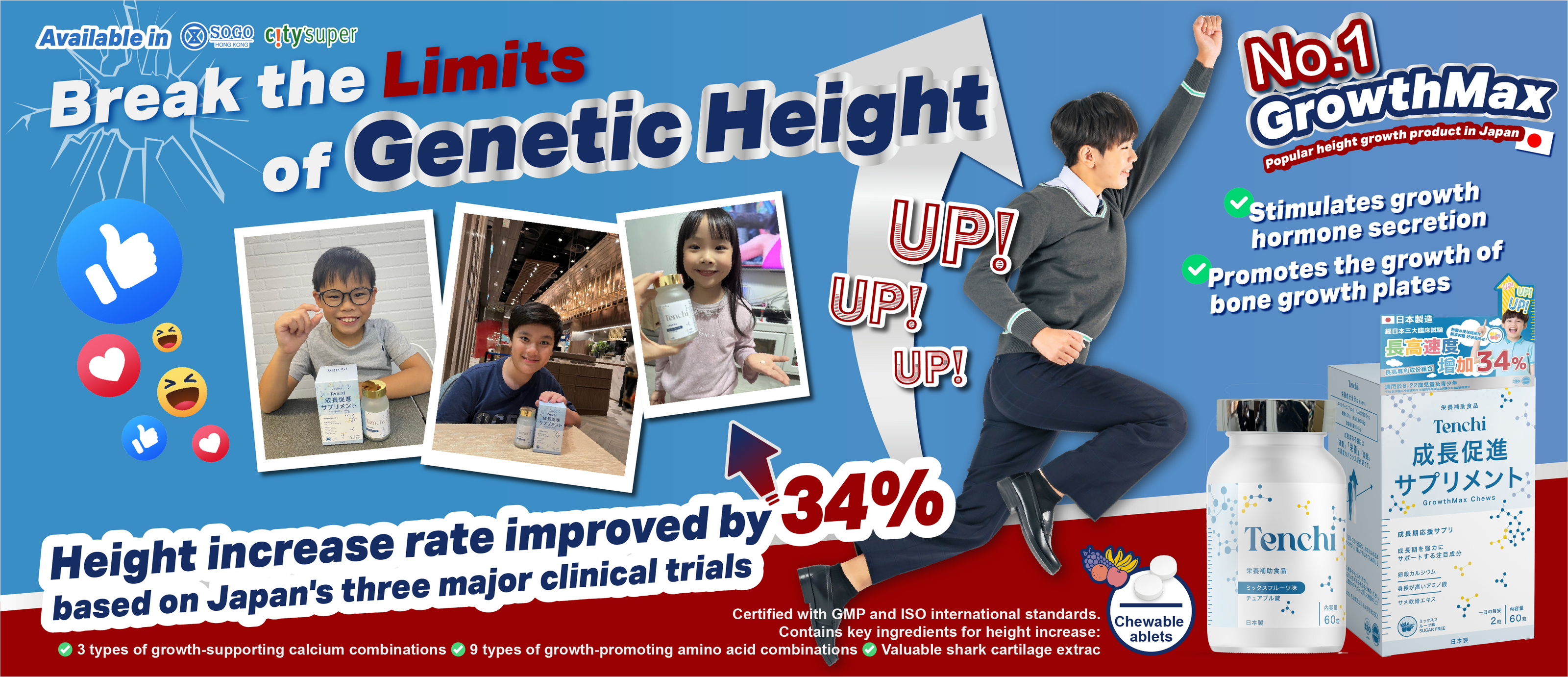
Tenchi GrowthMax Chews (Sugar-Free Formula)are a revolutionary nutritional supplement designed to help break through genetic height limitations. Formulated with a range of natural ingredients essential for growth, the gummies contain three types of growth-promoting calcium (eggshell calcium, shell calcium, coral calcium), nine key amino acids for growth (including lysine, threonine, arginine), whey protein, valuable shark cartilage extract, pig cartilage extract, and a vitamin premix*. Each gummy provides vital nutrients that are hard to obtain from diet alone, targeting cells throughout the body to stimulate growth hormone secretion and promote optimal bone development, helping you reach your full height potential.
3 major clinical trials in Japan have confirmed that the product effectively accelerates height growth in individuals aged 5 to 22.
Incorporate 3 Combinations of Growth Calcium and 9 Combinations of Growth Amino Acids

Clinically validated data show that these combinations effectively stimulate the secretion of growth hormones in various human cells. They focus on bone development, promoting the growth and strengthening of bone cells. Additionally, they can slow down the closure rate of growth plates, providing you with a second opportunity for growth and helping your bones develop healthily and perfectly, breaking through genetic height limitations!
Scientifically Proven Effective
In three major clinical trials in Japan involving 600 participants aged 5 to 22, over 92% of testers experienced an average height increase of 34% after taking GrowthMax Chews continuously for three months. The report indicates that GrowthMax Chews effectively stimulates the secretion of growth hormones, promotes the growth of the growth plate, and simultaneously slows the closure rate of the growth plate.
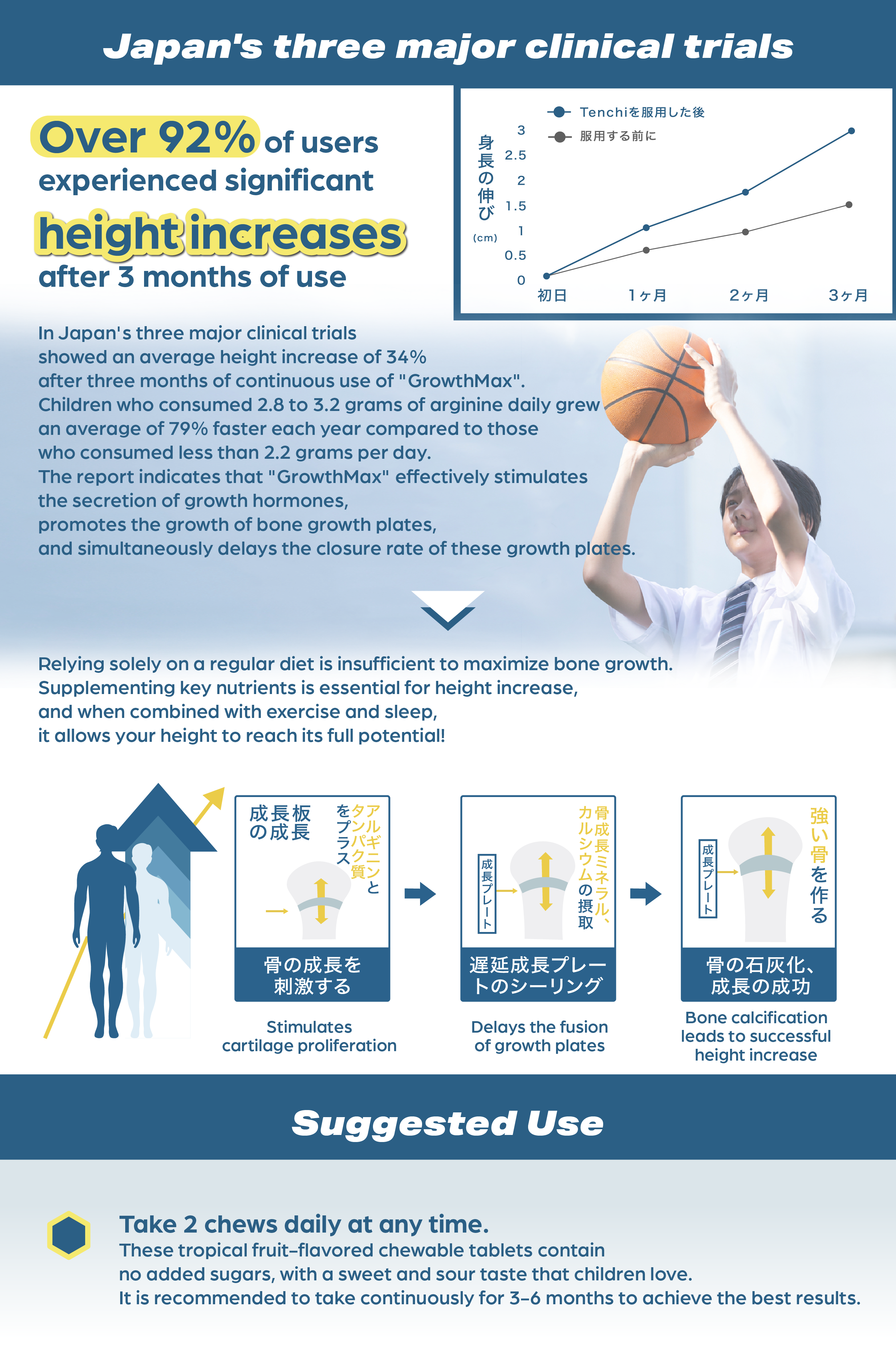
Who Should Take GrowthMax Chews?
Children and teenagers in their growth and development period, as well as individuals looking to enhance their growth during secondary development, are suitable candidates for this supplement.
Suggested Use
Take 2 chews daily at any time. These tropical fruit-flavored chewable tablets contain no added sugars, with a sweet and sour taste that children love. It is recommended to take continuously for 3-6 months to achieve the best results.
Tenchi Mall
Tenchi GrowthMax Chews





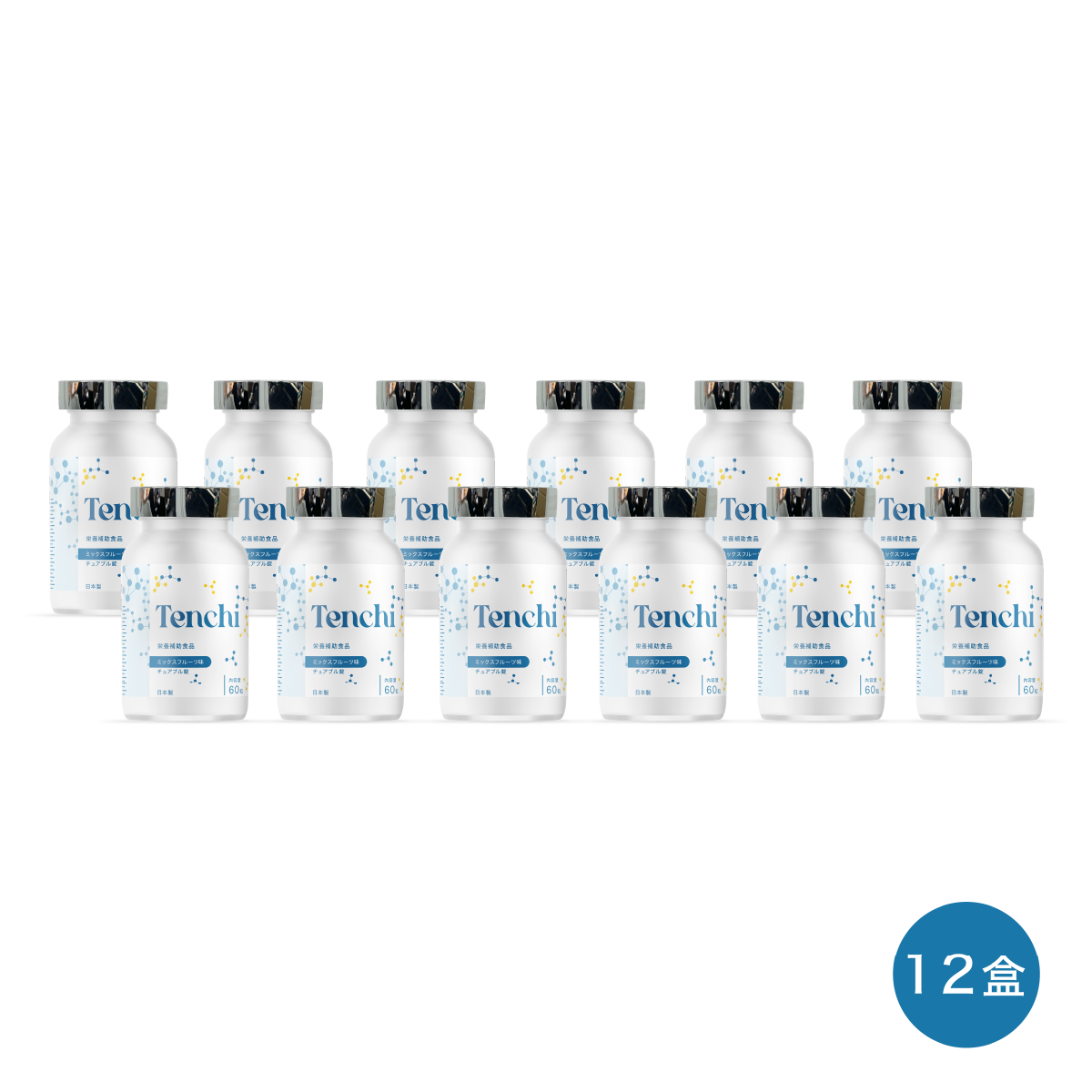




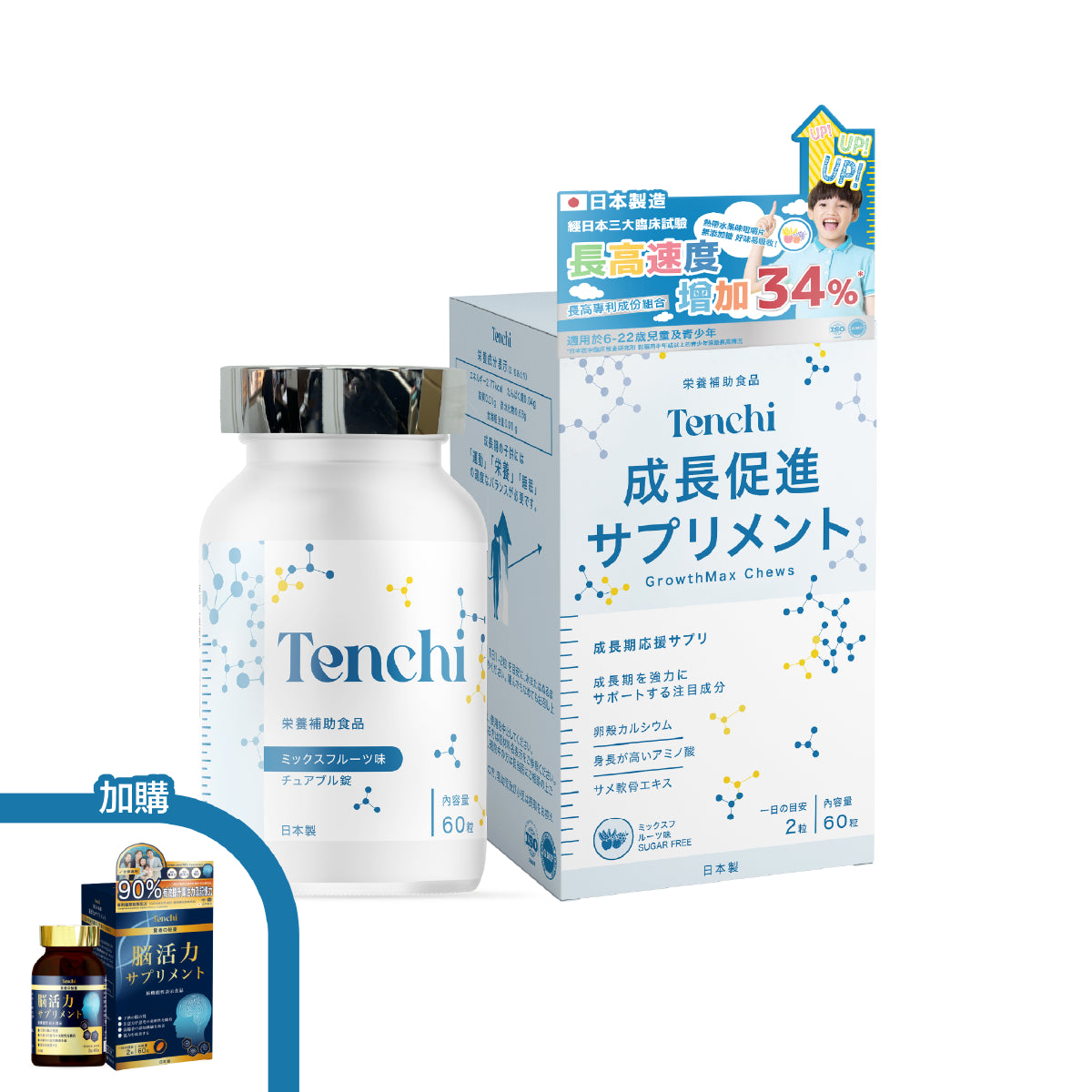

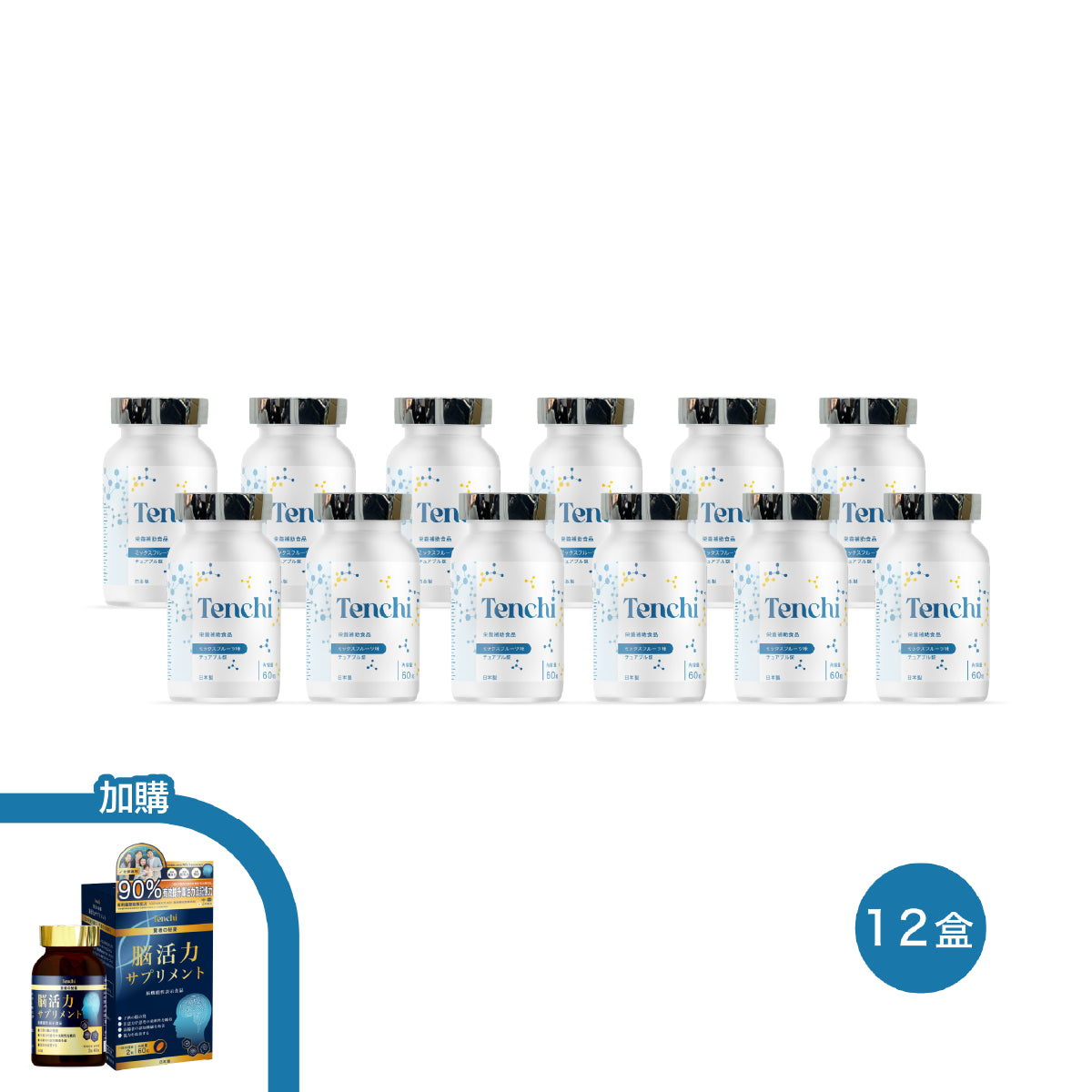

-
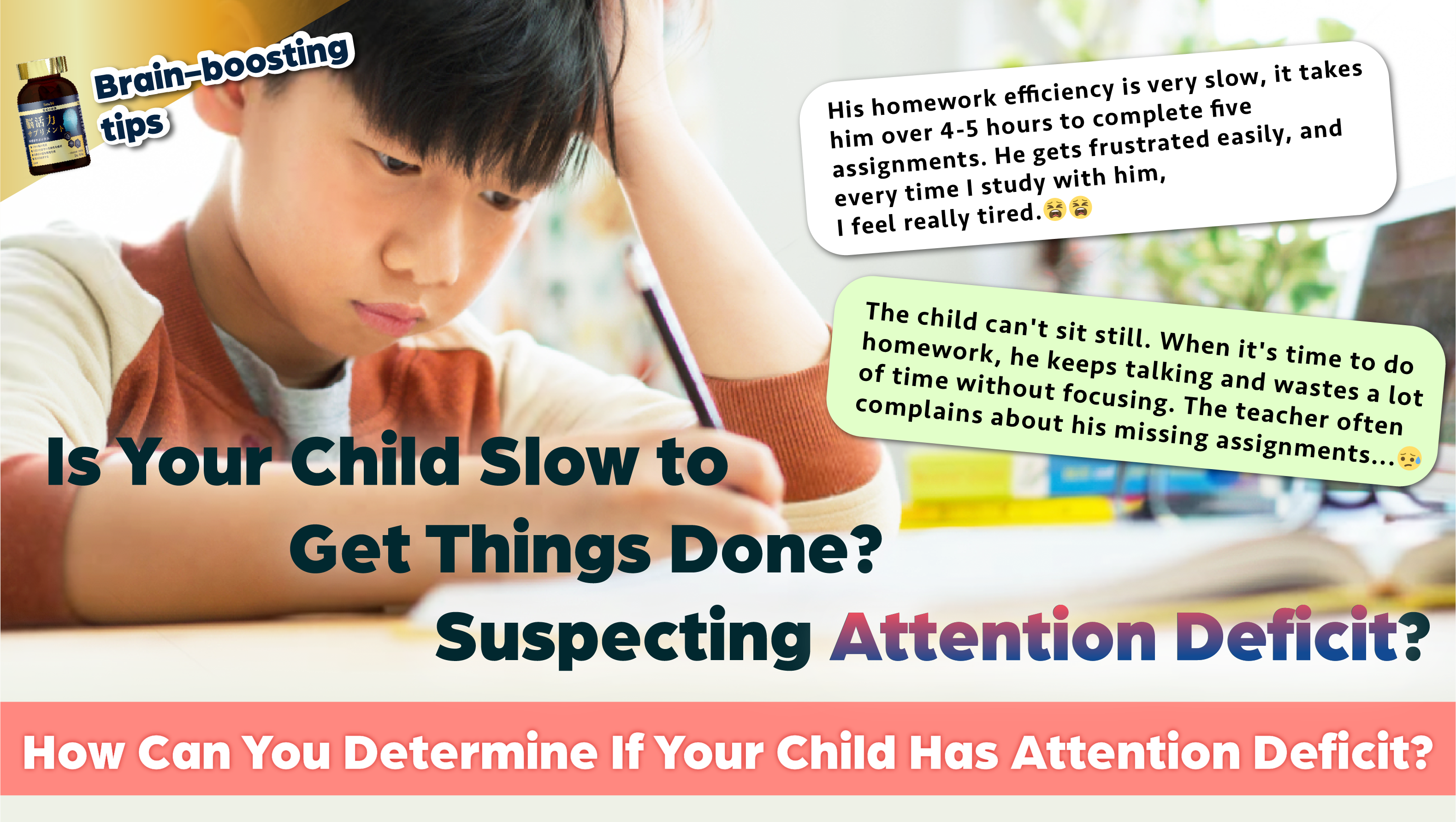
Is Your Child Slow to Get Things Done? Suspecting Attention Deficit?
Learn MoreDoes your child often seem restless, unable to sit still, or take a long time to finish tasks? Many parents run out of patience when helping their children study or complete homework, sometimes mistaking this behavior for mischief and scolding them. However, it may actually be a result of Attention Deficit (AD). What are the symptoms of attention deficit, and how can this issue be addressed? Let us explain!
-

Learn This Trick! Easily Adjust Your Body to Become Slimmer!
Learn More"Losing weight is so hard." This is a sentiment many people share. For some, it even becomes a lifelong mission! Many resort to extreme methods like dieting in an attempt to shed pounds. At first, it may seem effective—people can lose 2 to 3 kilograms, or even more, in a short time. However, after some time, they hit a plateau. Once they resume regular eating, their weight rebounds, sometimes with serious health consequences.
-

Say No to Steroids! Eliminate Eczema and Restore Your Baby-Smooth Skin!
Learn MorePeople with eczema often need to use topical steroids to control their condition. However, even with prolonged itching, it's important not to overuse these medications. Scratching the affected areas can lead to skin damage and expand the eczema's reach. Fortunately, many skincare brands are dedicated to researching solutions for the itching associated with eczema. A patented ingredient developed in collaboration with Kyoto University and Osaka University in Japan can quickly relieve eczema symptoms, alleviate itching, and help restore the skin barrier to address the problem at its source.
-

Poor Memory in the Elderly ≠ Dementia: A Simple Action to Delay Brain Aging!
Learn MoreAs we age, it’s common for memory to decline—forgetting names or where things are placed can cause concern about early signs of dementia. However, according to Japanese dementia specialist Dr. Yukimichi Imai, age-related memory loss and dementia are not the same, and there's no need to worry excessively about occasional forgetfulness. So, how can you differentiate between normal memory loss and dementia, and what can you do to prevent it? Let's explore!

























